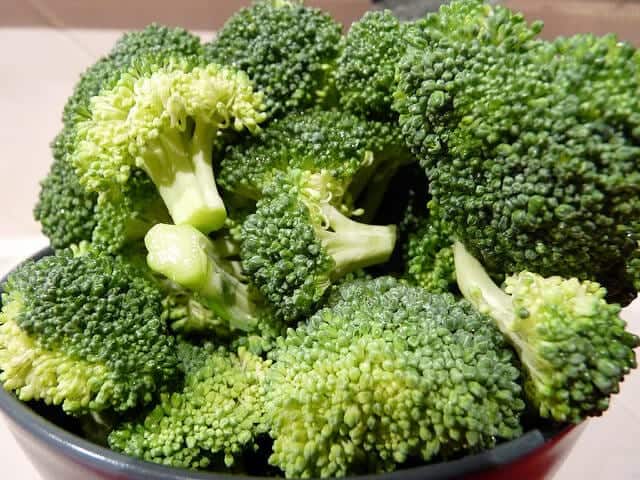Eating broccoli may be better for you than you thought. The green veggie can stabilize blood sugar levels and may be behind the next leap forward in diabetes treatment.
A group of researchers from the University of Gothenburg in Sweden have identified a key antioxidant called sulforaphane, which is found in large quantities in broccoli, and discovered that the chemical substance is a powerful adjunct to anti-diabetic medicine.

Specifically, their findings show that sulforaphane can help regulate glucose production in the liver, which can assist the body in stabilizing swirling blood-sugar levels. Sulforaphane, a phytochemical that is non-toxic in large doses, has previously been the target of research for the treatment of cancer and other inflammatory diseases.
The new study, which assessed the effects of sulforaphane on both mouse and human trials, adds compelling evidence that the extract can combat the growing rates of diabetes worldwide.
“There are strong indications that this can become a valuable supplement to existing medication,” says Anders Rosengren, Docent in Metabolic Physiology at the University of Gothenburg.
Tapping Into Genetics
For the current study, the Swedish researchers set out to tackle diabetes from a molecular level. They mapped out genetic changes in the livers of individuals with diabetes, ultimately finding 50 genes that were integral to healthy blood-sugar levels. From there, they studied nearly 3,000 distinct chemical compounds and their interaction on liver genes.
Of all the compounds they studied, sulforaphane proved to have the “best characteristics” for limiting disease progression. Testing the substance on rats and mice with diabetes, the researchers discovered that the broccoli sprout extracts caused blood-sugar levels to fall by 23 percent after a month of treatment.
Related: Eating Broccoli May Slow Signs of Aging
When they took the sulforaphane away, high blood-sugar levels also returned.
“We tested removing sulforaphane from the extract and the effect disappeared. We also looked at the genes from the liver of the animals and saw that the 50 key genes had been changed in the right direction,” said Rosengren.
The broccoli-derived antioxidant appears to work on a cellular level to disrupt sugar production.
“Sulforaphane suppressed glucose production from hepatic cells by nuclear translocation of nuclear factor erythroid 2–related factor 2 (NRF2) and decreased expression of key enzymes in gluconeogenesis,” report the study authors in Science Translational Medicine.
In other words, the extracts reversed the “disease signature” in the liver by altering the genetic output. Such a turnaround could mean that sulforaphane soon may be a powerful add-on to existing diabetes treatments.
Related: An Apple a Day Could Keep Diabetes Away
“As functional food, it can reach the patients faster than a medication, and it is also an interesting concept from a diabetes perspective where diet is central,” said Rosengren.
However, the researchers still have to work out a few kinks. A single dose of the antioxidant is derived from about nine or 10 pounds of broccoli.
“High doses of [broccoli sprout extract] cannot yet be recommended to patients as a drug treatment but would require further studies, including data on which groups of patients would potentially benefit most from it,” report the study authors.
Yet “the plan is to have a functional food preparation out within two years,” add the researchers.
Richard Scott is a health care reporter focusing on health policy and public health. Richard keeps tabs on national health trends from his Philadelphia location and is an active member of the Association of Health Care Journalists.


![How To: ‘Fix’ Crepey Skin [Watch]](https://cdn.vitalupdates.com/wp-content/uploads/2017/05/bhmdad.png)












